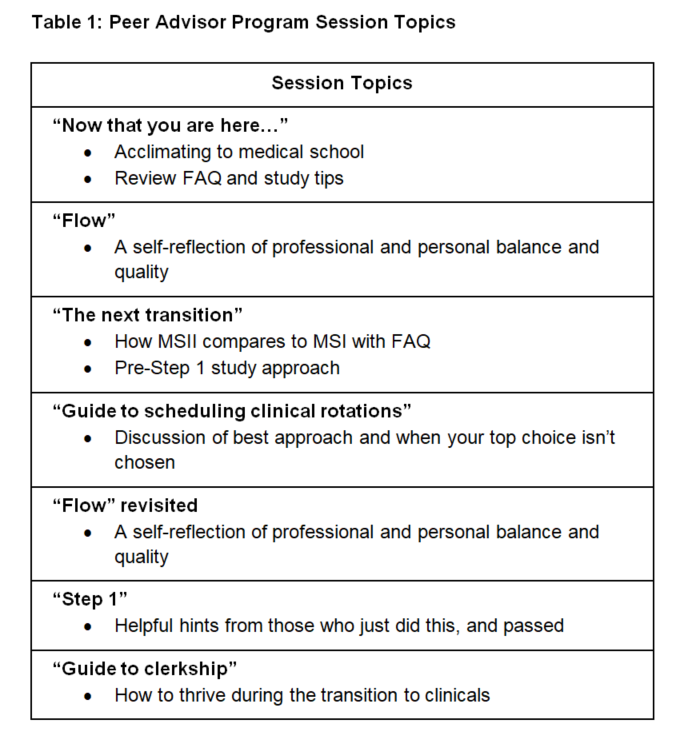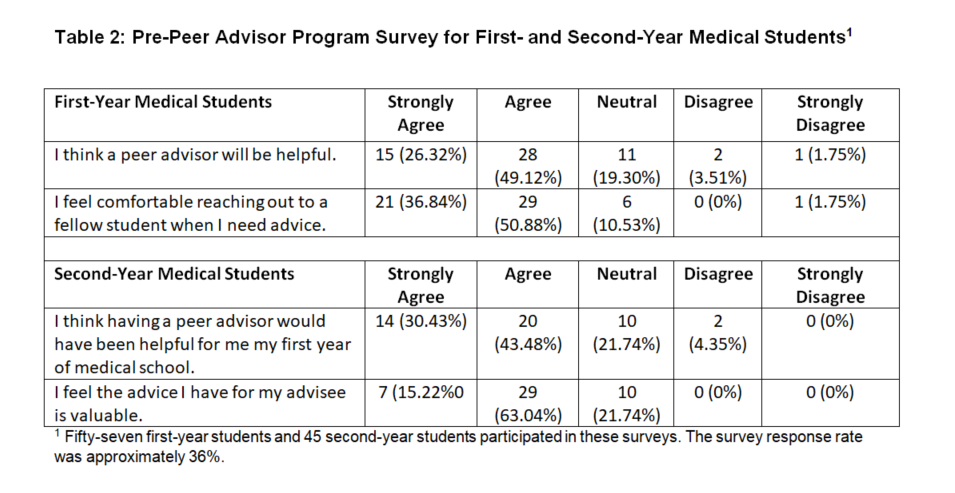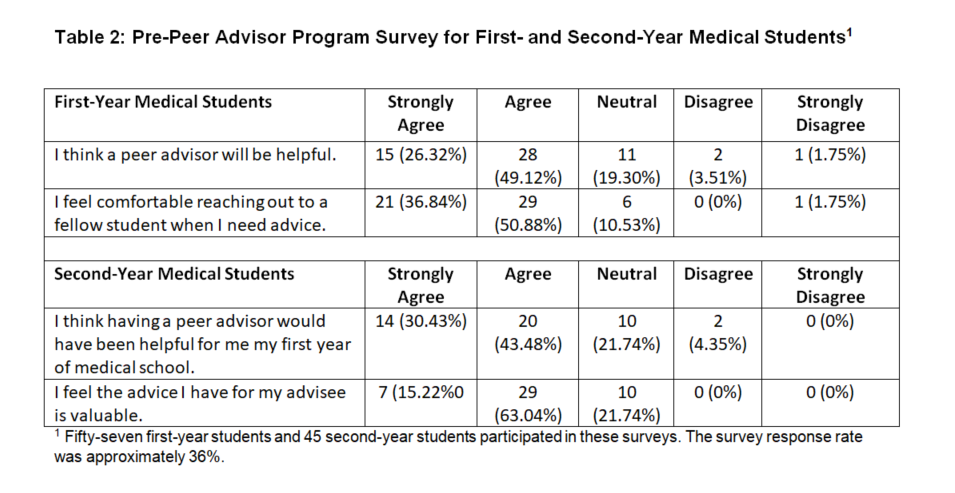Peer Advisor Program: A Vertical Mentoring Curriculum in the OHSU School of Medicine Colleges
By Amy Wiser, MD and Amarprit Bains, MD
Background and Objective
Completing medical school can be a jarring period in the lives of learners. Medical schools have piloted a variety of methods to ease this transition.1 One such method is the creation of a peer mentoring program; however, there is scant literature on this topic specific to undergraduate medical education.2,3
Our goals were to introduce students to the concept of mentoring and to develop a vertical peer mentoring program focused on professional and academic interests.
Methods
During the 2019-2020 academic year, we commenced the Peer Advisor Program. The program has been incorporated into Oregon Health & Science University’s Colleges Curriculum, that includes learning experiences in areas of academic opportunities, career advising and leadership. As such, the Colleges curriculum provides a context in which to initiate scheduled, scripted vertical mentoring for the first- and second-year medical school classes. Incoming first-year students were paired with second-year students based on their assigned cohort within their selected college and by recommendation of their college coach. The peer pairs have protected curriculum sessions and the program follows outlined topics for discussion (Table 1). As our second-year peer advisors begin their third year of medical school, their mentorship of the junior students will continue during protected curricular times. Peer mentorship is also encouraged to be continued independently until time of graduation. The first-year class will then move on to be peer advisors during their second year of medical school while still under the mentorship of their seniors.

Surveys (Likert scale) of student engagement and satisfaction were conducted prior to the initiation of the Peer Advisor Program for both senior and junior classes. We plan to administer follow-up surveys in August 2019 after completion of 1 year in the program.
Results
Preliminary data from the surveys administered prior to the initiation of the Peer Advisor Program (Table 2) revealed strong support from the first- and second-year students for the program. The majority of students felt that a peer advisor program would be helpful. First-year student responses found that most students are comfortable reaching out to other students for advice. Likewise the second-year students felt that their advice is valuable.


Discussion
The Peer Advisor Program was well received by students for appropriate content and length of sessions, as well as need. This is reflected in our preliminary survey data. Anecdotally, faculty have also viewed the program as positive, providing a resource for gaps in their own knowledge. Survey for faculty perspective of the program is a future area of study.
Colleges have found a designated place in our medical school culture. A protected and regularly scheduled time in the didactic curriculum has been of tremendous benefit as we began the Peer Advisor Program. As the program continues and more data is collected, we hope to further develop the content of our curriculum. As vertical peer mentoring programs continue to emerge, the data on peer mentoring in the undergraduate medical education environment can be shared and applied to the education of medical students throughout the country.
References
- Mejicano GC, Bumsted TN. Describing the journey and lessons learned implementing a competency-based, time-variable undergraduate medical education curriculum. Acad Med. 2018 Mar;93(3S Competency-Based, Time-Variable Education in the Health Professions):S42-S48.
- Andre C, Deerin J, Leykum L. Students helping students: vertical peer mentoring to enhance the medical school experience. BMC Res Notes. 2017;10(1):176. https://doi.org/10.1186/s13104-017-2498-8
- Akinla O, Hagan P, Atiomo W. A systematic review of the literature describing the outcomes of near-peer mentoring programs for first year medical students. BMC Med Educ. 2018;18(1):98. https://doi.org/10.1186/s12909-018-1195-1
